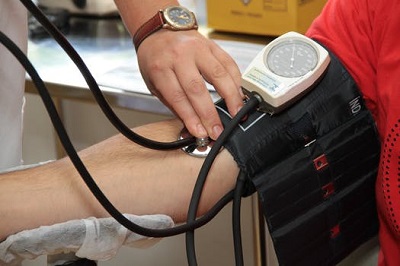If you take a daily dose of medicine to control high blood pressure, new research suggests it’s better to take it at bedtime.
That might sound counterintuitive; surely you take your pills in the morning to control your blood pressure while you’re active throughout the day, while at night it will naturally fall while you’re asleep, right?
 Not so, say the researchers, who believe our ‘body clock’ or natural 24-hour rhythm alters our response to medication. After a large and lengthy study, they say pills for high blood pressure (hypertension) offer better protection against heart attacks and strokes when taken at bedtime rather than in the morning. And even though it’s only a small change, it could save countless lives.
Not so, say the researchers, who believe our ‘body clock’ or natural 24-hour rhythm alters our response to medication. After a large and lengthy study, they say pills for high blood pressure (hypertension) offer better protection against heart attacks and strokes when taken at bedtime rather than in the morning. And even though it’s only a small change, it could save countless lives.
A growing body of medical research suggests that different types of drug, including heart medication, work better when taken at specific times of the day, to synchronise with the human body’s natural rhythm. The latest study, carried out by a team of Spanish researchers, is the biggest so far to look at this phenomenon in relation to high blood pressure and the pills taken to control it.
Left untreated, high blood pressure increases your risk of serious medical problems such as heart attacks and strokes. It is thought around a third of UK adults have high blood pressure to some degree, although many will not even realise it because it presents hardly any symptoms. It’s why everyone should have a regular blood pressure check with their GP or at many pharmacies.
Once detected, it can be reduced by lifestyle changes such as losing weight, eating healthily, cutting down on alcohol, stopping smoking and exercising more. However, these changes are usually combined with medication. The new Spanish study looked at more than 190,000 people on medication for high blood pressure in an effort to find out if the time of day when people take their pills makes any difference to their effectiveness.
The large study group was randomly split into two halves, with one half taking their medication in the morning and the other half at bedtime. Both groups were then monitored over the next five or more years, with the researchers finding that the ‘bedtime group’ nearly halved their risk of having – or dying from – a heart attack, stroke or heart failure.
The patients who took their medication at bedtime had significantly lower average blood pressure both at night and during the day, and their blood pressure dipped more at night, when compared with patients taking their medication each morning. Blood pressure should naturally dip at night, as we rest and sleep, but if it doesn’t – as is often the case in people with hypertension – there is an increased risk of heart attacks and strokes.
Professor Ramon Hermida, who led the research team, explained: “The results of this study show that patients who routinely take their anti-hypertensive medication at bedtime, as opposed to when they wake up, have better-controlled blood pressure and, most importantly, a significantly decreased risk of death or illness from heart and blood vessel problems.”
While adding that more research was needed to check the findings in different populations and taking different brands of medication, he said doctors might consider advising their patients to switch to taking their pills at bedtime.
“It’s totally cost-free and it might save a lot of lives,” he said. “Current guidelines on the treatment of hypertension do not recommend any preferred treatment time. Morning ingestion has been the most common recommendation by physicians based on the misleading goal of reducing morning blood pressure levels.”
Reacting to the Spanish study, Vanessa Smith, from the British Heart Foundation, said: “Although this study supports previous findings in this area, further research amongst other ethnic groups and people who work shift patterns would be needed to truly prove if taking blood pressure medication at night is more beneficial for cardiovascular health.
“If you’re currently taking blood pressure medication, it’s important to check with your GP or pharmacist before changing the time you take it. There may be specific reasons why your doctor has prescribed medication in the morning or night.”
